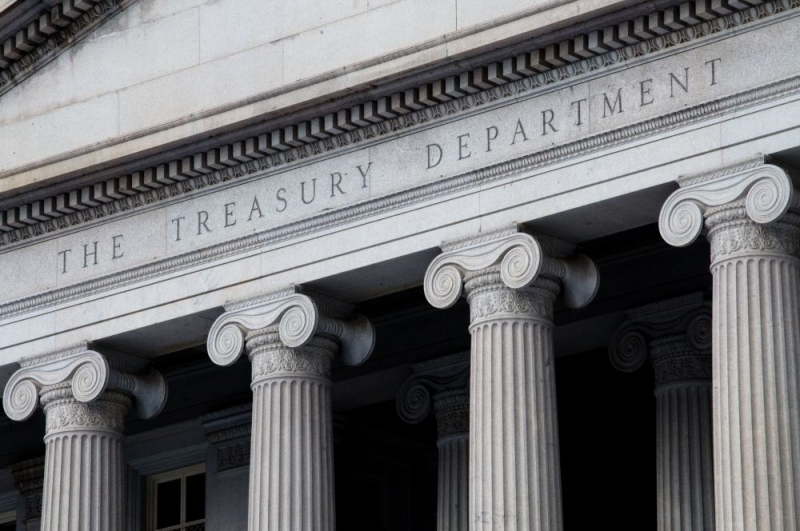Making the Most of Your COVID-19 Stimulus Check
In the coming weeks and months, Americans will be receiving stimulus checks from the United States government as a part of the CARES Act.
For those whose income has been affected by COVID-19, these funds will be used to cover immediate and necessary expenses. For others who may be sitting more comfortably at this time, these funds may be wisely invested elsewhere.

Here’s what you need to know about the stimulus checks and some tips for making the most of yours.
How Much You Can Expect to Receive
- Individuals with adjusted gross incomes of up to $75,000 per can expect to receive a $1,200 check. The payment amount lessens as income rises, up to $99,000 (at which point it ends).
- Married couples (that earn up to $150,000) can expect to receive $2,400.
- Families with children can expect to get up to an additional $500 per child (however, this amount also phases out based on income).
You can find a stimulus check estimate calculator here.
When You Can Expect to Receive It
- If you filed taxes in 2018 or 2019 and provided your direct deposit information, you can expect to receive your stimulus check directly in your account in mid-April.
3Rivers members can easily monitor their accounts for any deposits using online access or our mobile banking app. - If you filed your taxes in 2018 or 2019 but did not provide direct deposit information, your check could arrive as early as May or as late as September via postal mail.
3Rivers members can deposit physical checks at their nearest drive-thru or ATM, or with our mobile app. - If you do not file taxes, have a different mailing address than when you last filed, need to update your banking information, or want to see if you're eligible for the stimulus check, visit the Economic Impact Payment Information Center.
How to Spend Your Check if Your Finances Have Been Affected by COVID-19
The key to wisely spending your stimulus check if your finances have suffered due to COVID-19 is to prioritize where the money goes based on expenses and bills you’ve been unable to find relief or funds for, including:
- Rent or Mortgage Payment
- Utility Bills
- Food
- Medical Care or Prescriptions
Keep in mind that many financial institutions, creditors, lenders, and utility companies are offering assistance at this time (offering forbearance, delayed payments, waiving monthly fees, and so on). Take some time now, if you haven’t already, to reach out and see if these options are available to you.
Additionally, consider looking into resources like food banks and schools, offering free food staples and free meals for kids, asking your doctor or pharmacy for discounted prescriptions or samples, and more, in order to cut down on these costs for a time, allowing your stimulus check dollars to go even further.
If you can, set aside a couple hundred dollars’ worth in order to have those funds at-the-ready for bills that will be due in the coming months.
How to Spend Your Check if Your Income Remains Stable
If your income hasn’t suffered due to COVID-19 and the stimulus check will provide you with extra funds you don’t need immediately, consider investing it in the following ways:
- BEEF UP YOUR EMERGENCY FUND. Having three months’ worth of your income saved in the event of an emergency is great—but having six months’ worth is even better. These extra dollars would be a great boost to your emergency savings! Check out this post to learn more about the importance of an emergency fund and how to start one.
- PAY DOWN HIGH-INTEREST DEBT. If you have credit cards or loans that you want to start paying down, start paying on those with the highest interest first, so you’re saving how much you’ll pay in interest in the long-run.
- PAY DOWN CREDIT CARDS OR OTHER LINES OF CREDIT YOU MAY NEED LATER. Free up some of your credit card balance (or other open/revolving lines of credit), especially if you’re feeling uncertain about the future of your financial state and think you may need to turn to using them as a cushion later.
- INCREASE OTHER SAVINGS. If your emergency fund is in a good state, but you'd like to add to your retirement account, health savings account, college fund, or another special fund (if you're planning a wedding, will soon be having a baby, etc.), or invest in a savings certifiate, the stimulus check can offer an immediate boost.
- DONATE TO LOCAL CHARITIES OR SPEND AT LOCAL BUSINESSES. If you feel comfortable with the state of your savings and debt, consider donating a portion of your check to local non-profits in need or supporting small businesses you believe in!
We Can Help You Come Up with a Plan
Not sure what your smartest move is when it comes to spending or investing your stimulus check? Our team would be happy to talk with you to review your current financial situation, help you prioritize, and connect you with resources for helping you make the most of these funds. Give our Financial Wellness Hotline a call at 260.490.8328, option 7.
Beware of Stimulus Check Scams
Now is a prime time for fraudsters to attempt getting their hands on your information. Be cautious if you receive any unusual phone calls, text messages, social media messages, or emails asking you for identifying information. The IRS will NOT contact you for this information. Here’s how you can spot a stimulus check scam!
What to Do if You Have Questions About Your Check
The IRS advises against calling them if you have questions, and encourages you to check their website for updates and information regarding stimulus checks.
